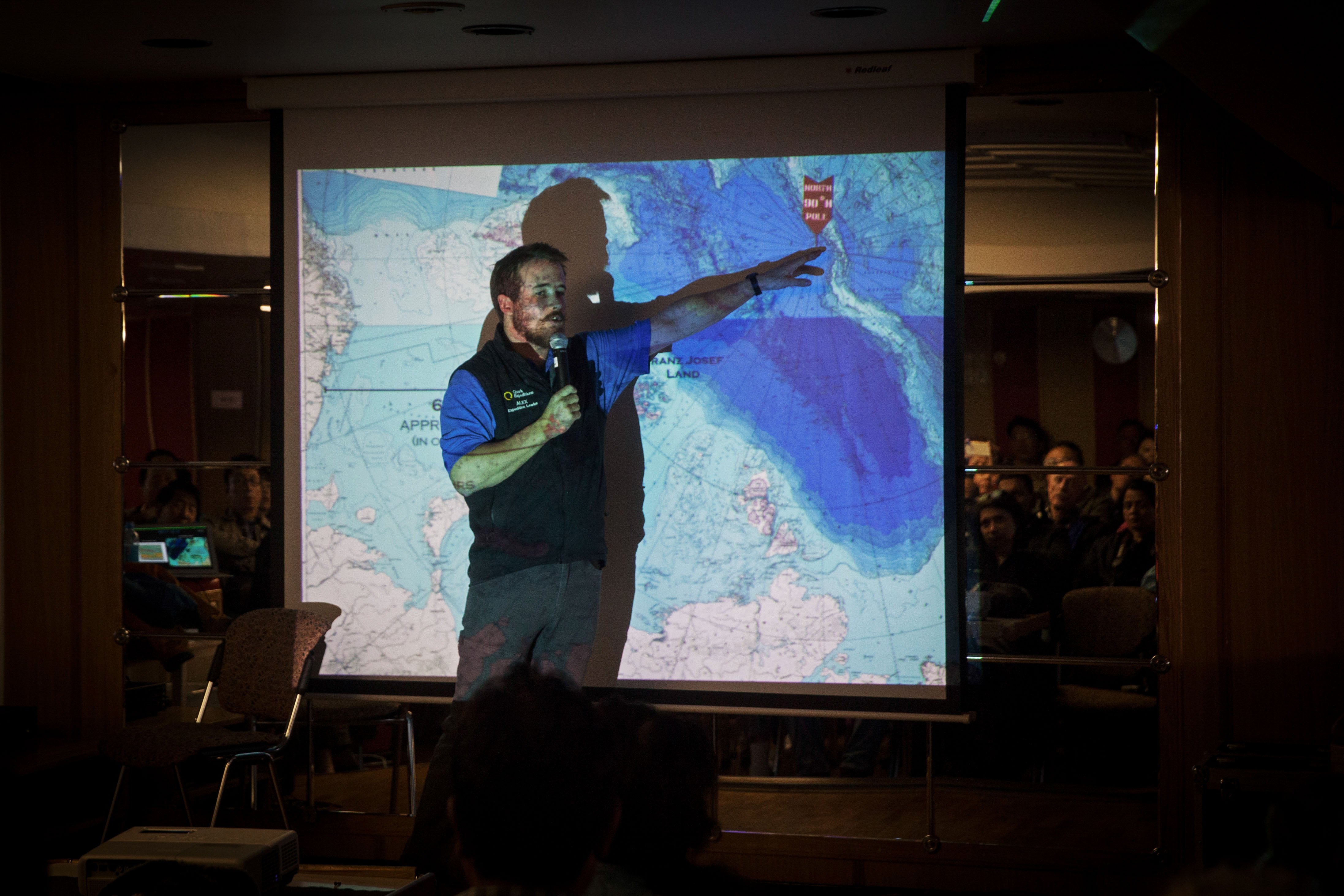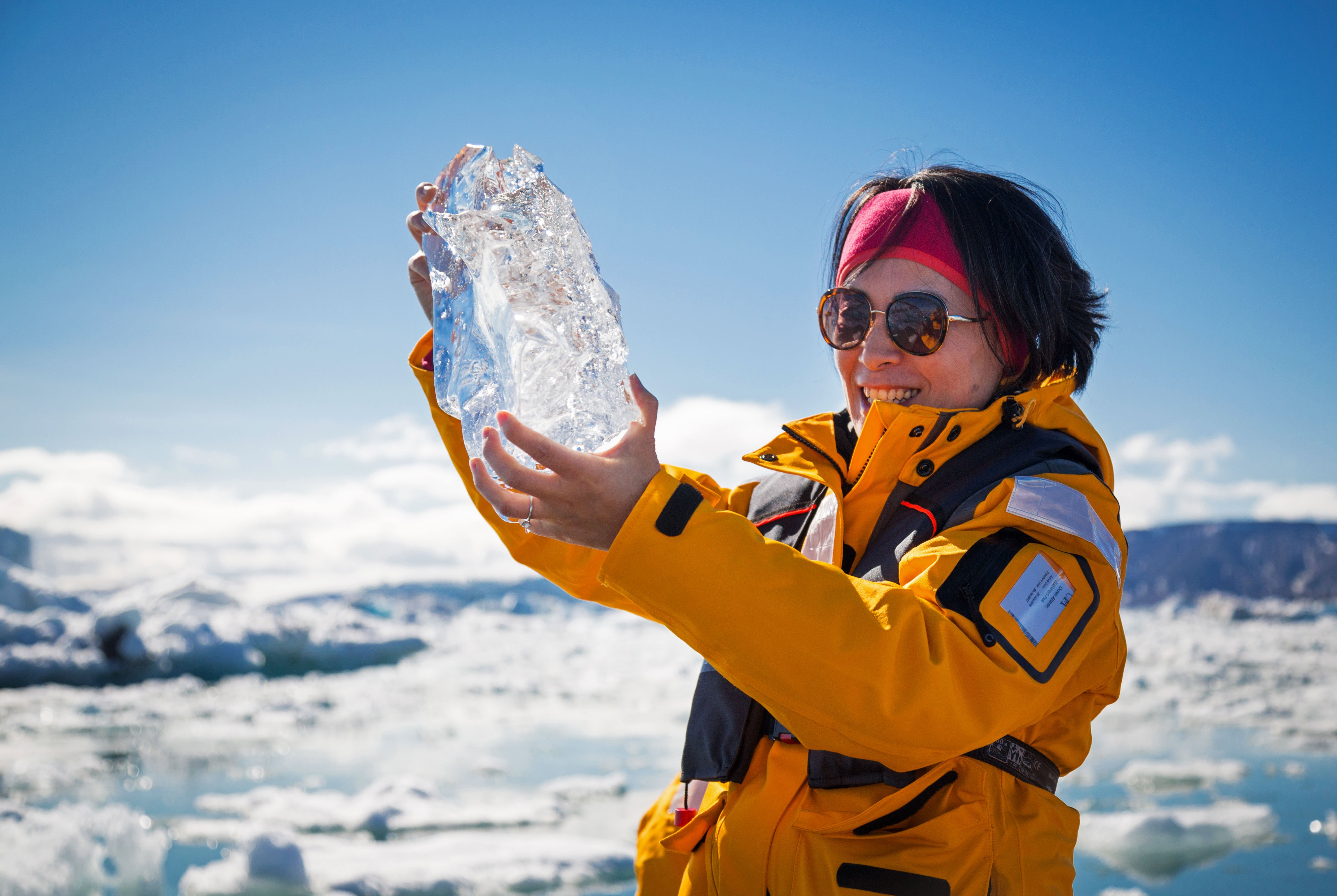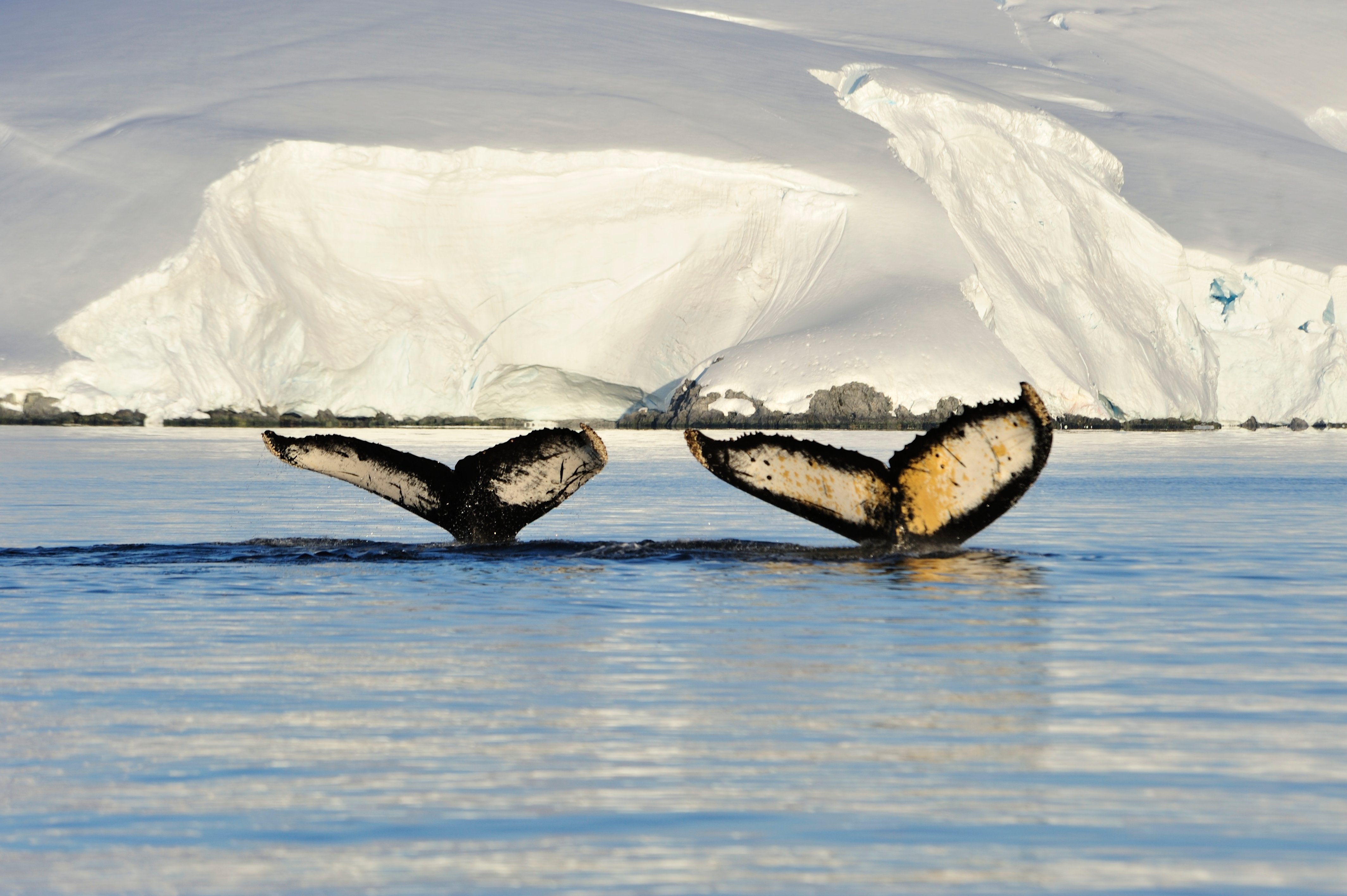Ever since the early days of polar exploration, ship-based observations have been vital for furthering understanding not only the geography of these remote regions, but of the weather systems and the beating heart of our entire planet. The first explorers one hundred years ago revolutionized world maps. The influence of observations in the polar regions is arguably even more important in the modern world of climate and habitat change.
Arctic and Antarctic ships serve as important platforms for multidisciplinary research, and their unique access to some of the world's most remote and challenging environments make them critical tools for advancing our understanding of the polar regions and their role in global processes.

The earliest expeditions over a century ago were funded by a variety of public and private sources, including national governments, which wished to assert their sovereignty over polar territories, explore new frontiers, and gather scientific information that could be used for military or economic purposes. Exploration societies, such as the Royal Geographical Society or the Explorers Club, frequently organized fundraising campaigns and solicited donations from their members to support the exploration of new frontiers and to advance human knowledge. Private philanthropists, such as wealthy businessmen or industrialists, were often motivated by a sense of adventure or a desire to advance scientific knowledge. And scientific institutions were interested in studying the geology, meteorology, or biology of the polar regions, seeing polar expeditions as a way to collect data and make new discoveries. These sources of funding continue to play an important role in supporting polar research today.
Research ships in the Arctic and Antarctic are equipped with a range of oceanographic instruments, such as sensors, samplers, and acoustic devices that allow scientists to study the physical and chemical properties of the ocean, including temperature, salinity, current flows, and ocean circulation patterns. This research is critical for understanding the role of the polar regions in global climate processes, as well as for monitoring the impacts of climate change on the marine environment.

Glaciology research is carried out on the polar ice caps and glaciers, including studies of ice dynamics, mass balance, and ice sheet thickness. Scientists aboard these ships use a range of techniques, such as ice-penetrating radar, laser altimetry, and airborne surveys, to measure the properties of ice and study its response to changes in climate.
The RRS Sir David Attenborough, for example, is a highly advanced British research ship used for a variety of polar research projects, including studies of the Southern Ocean, Antarctic ice sheets, and marine biodiversity. One notable expedition that the ship has recently undertaken was to retrace and extend Shackleton’s voyage in the Weddell Sea, exploring a region of the Antarctic that has been largely inaccessible due to sea ice, to study the impacts of climate change.
Biogeochemistry is also carried out on board some ships, as is atmospheric research, including studies of air quality, climate change, and weather patterns. These ships use a range of instruments, such as aerosol samplers, radiometers, and atmospheric probes, to measure the properties of the atmosphere and study its interactions.
.jpg?width=6720&height=4480&name=North%20Pole%20-%20Credit%20Grange%20Productions%20(32%20of%20126).jpg)
Credit: Grange Production
Polar research ships also support a wide range of biological research, including studies of marine ecosystems, biodiversity, and species distribution. A variety of sampling techniques are used, such as trawls, nets, and plankton tows, to collect samples of marine organisms, including phytoplankton, zooplankton, fish, and other marine wildlife. This research is critical for understanding the role of the polar oceans in global biodiversity and ecosystem processes, as well as for monitoring the impacts of climate change on marine life.
Migratory patterns are also studied in ship-based observations, notably bird migration in relation to environmental impact studies on wind turbines and other installations in marine waters, but also, importantly, the migration and survival rates of marine mammals.

Last but by no means least, there are some marvelous citizen science projects which contribute valuable data about marine mammals. Given the restricted number of ships traversing the polar seas, it’s important to use as many of them as possible for data collection, to increase the number of data samples scientists receive. Citizen Science has a large impact on and greatly assists the scientific community in both Antarctica and the Arctic!
How would you like the opportunity to contribute to a science project while on your polar cruise expedition, helping to collect data on whale sightings, including the species of whale, location, and behavior?

Happywhale is a citizen science project you can participate in on many of our expedition ships. The initiative aims to gather data on whale populations around the world and engage the public in whale conservation efforts. The project was launched in 2015 by marine biologists Ted Cheeseman and Mark Carwardine, and has since grown into a global network of whale enthusiasts and researchers.
It works by encouraging whale watchers and other ocean enthusiasts to take photos of whales they encounter during their trips and upload them to the Happywhale website or mobile app. The photos are then analyzed by the project's software, which uses machine learning algorithms to identify individual whales based on their unique markings and patterns. The data collected by the project is shared with researchers and conservation organizations, who use it to better understand whale populations, migration patterns, and behaviors.
The Happywhale project also works to engage the public in whale conservation efforts through education and outreach. The project's website and mobile app provide information on whale species, their conservation status, and the threats they face, as well as tips for responsible whale watching and ways to support conservation efforts. By involving the public in whale research and conservation efforts, the Happywhale project aims to build a global community of ocean enthusiasts and empower individuals to take action to protect these magnificent animals and their habitats. All participating ships conform to the core whale watching principles, as established by the International Whaling Commission experts in 1996. The possible impacts of observation on whales are thus managed and the animals themselves decide how long interactions should last. It’s well known that some species are more sociable than others and will approach ships, for example beluga and minke whales, while others, such as finback whales, are more shy – and fast, so not as easy to spot. The aim is to engage in eco-friendly whale watching that values whales in their natural habitat and contributes to local economies.

Whale watching recently made the headlines when a scientific paper was published about an encounter that whale spotter Marie-Thérèse Mrusczok had while on a commercial tour vessel in western Iceland in August 2021, when she saw an orca apparently caring for a new-born long-finned pilot whale in a previously unheard-of display of interspecies empathy. Excitingly, the adult whale in question was known and documented, as photos of her had been previously analyzed by the project’s software.
Polartours offers the opportunity to participate in the Happywhale project on board of many ships, including the Ocean Adventurer, Sylvia Earle, Ultramarine, Ocean Albatros, Greg Mortimer, Magellan Explorer, Seaventure and Ocean Victory, and many more. All Polartours expeditions and cruises have experts and scientists on board to explain marine phenomena, give talks and help you observe Arctic and Antarctic fauna, while an experienced skipper will also have the know-how to get you to the best locations for wildlife spotting. Participating in scientific experiments really enhances the experiences of a polar tour, so please inquire with us to find out more about how even tourist vessels can contribute to scientific understanding.




